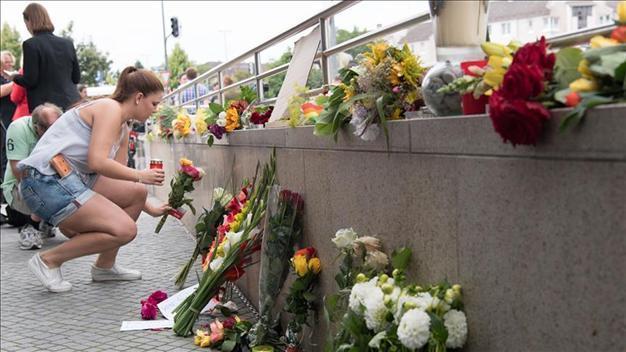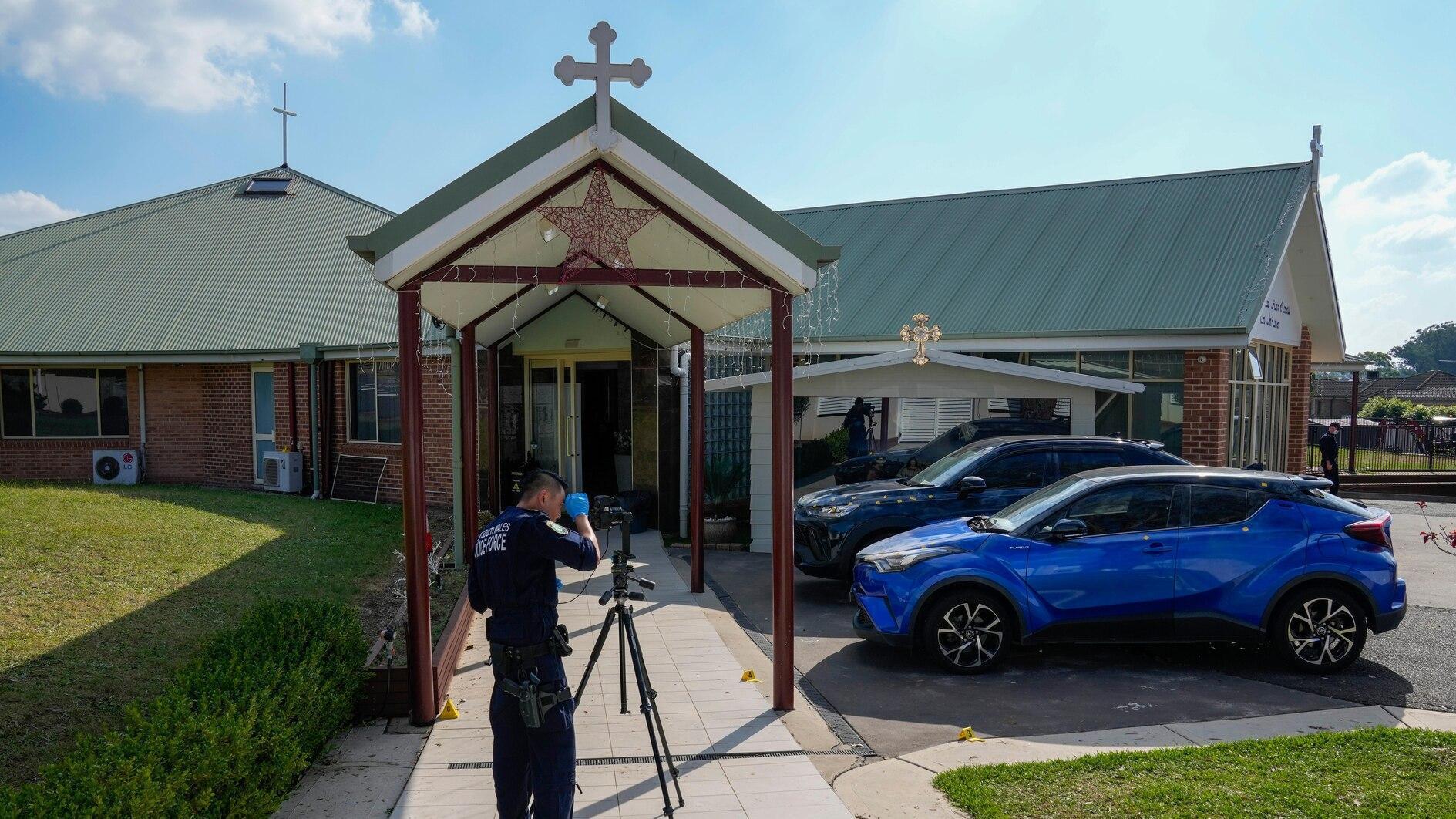Three Turks among dead in Munich shooting
MUNICH/ANKARA

People lay flowers at makeshift memorial site near the Olympia shopping center in Munich, Germany, 23 July, as the area is secured after a shootout on the previous day. AA photo
An 18-year-old German-Iranian gunman who apparently acted alone opened fire near a busy shopping mall in Munich on July 22, killing at least nine people, including three Turks, in the third attack on civilians in Western Europe in eight days.
Three Turks were among the dead in the shooting spree at the mall, Turkish Foreign Minister Mevlüt Çavuşoğlu said on July 23.
The names of the Turkish victims were identified as Can Leyla, 14, Selçuk Kılıç, 17, and Sevda Dağ, 45.
The teenage gunman, David Ali Sonboly, was “obsessed” with mass killers like Norwegian rightwing fanatic Anders Behring Breivik and had no links to the Islamic State of Iraq and the Levant (ISIL), German police said July 23.
Munich prosecutor Thomas Steinkraus-Koch said Sonboly had suffered depression, but voiced caution over reports he may have undergone psychiatric treatment.
German Interior Minister Thomas de Maiziere said the teenager had likely hacked a girl’s Facebook account and used it to lure victims to the McDonald’s outlet where he began his rampage.
“There is absolutely no link to the Islamic State [ISIL],” Munich Police Chief Hubertus Andrae said, with prosecutors describing the assault as a “classic act by a deranged person” who later turned the gun on himself.
Investigators see an “obvious link” between the July 22 killings and Breivik’s massacre of 77 people in Norway exactly five years earlier, Andrae added.
German Chancellor Angela Merkel said Munich had suffered a “night of horror.”
In addition to determining the motive, police will have to find out how the attacker got the firearm used in the attack in a country with a gun control system described by the U.S. Congress Library as being “among the most stringent in Europe.”
Meanwhile, recent attacks on civilians in the U.S. and Europe have exposed a gap in the intelligence community’s efforts to track suspected extremists and prevent mass killings, a number of American, British and French counterterrorism officials told Reuters.
The attacks have a common theme of being carried out by actors with an apparent history of mental illness - but few if any direct links to extremist groups, the officials told Reuters.
From both a legal and a strategic perspective, counterterrorism investigators globally are focused on plots by established violent groups with known ideologies, such as ISIL. In the U.S., laws designed to protect citizens from intrusive government spying can limit investigations of individuals unless they have provable ties to foreign terror groups.
Counterterrorism officials told Reuters that the assailants in a recent spate of mass killings all had histories of apparent mental illness. They included the mass shooting at a gay nightclub in Orlando, Florida; the murder of a British parliamentarian in Northern England; the killings of police in Baton Rouge, Louisiana, and Dallas, Texas; the Bastille Day truck attack in Nice, France; and the mass shooting at a German shopping mall.
















